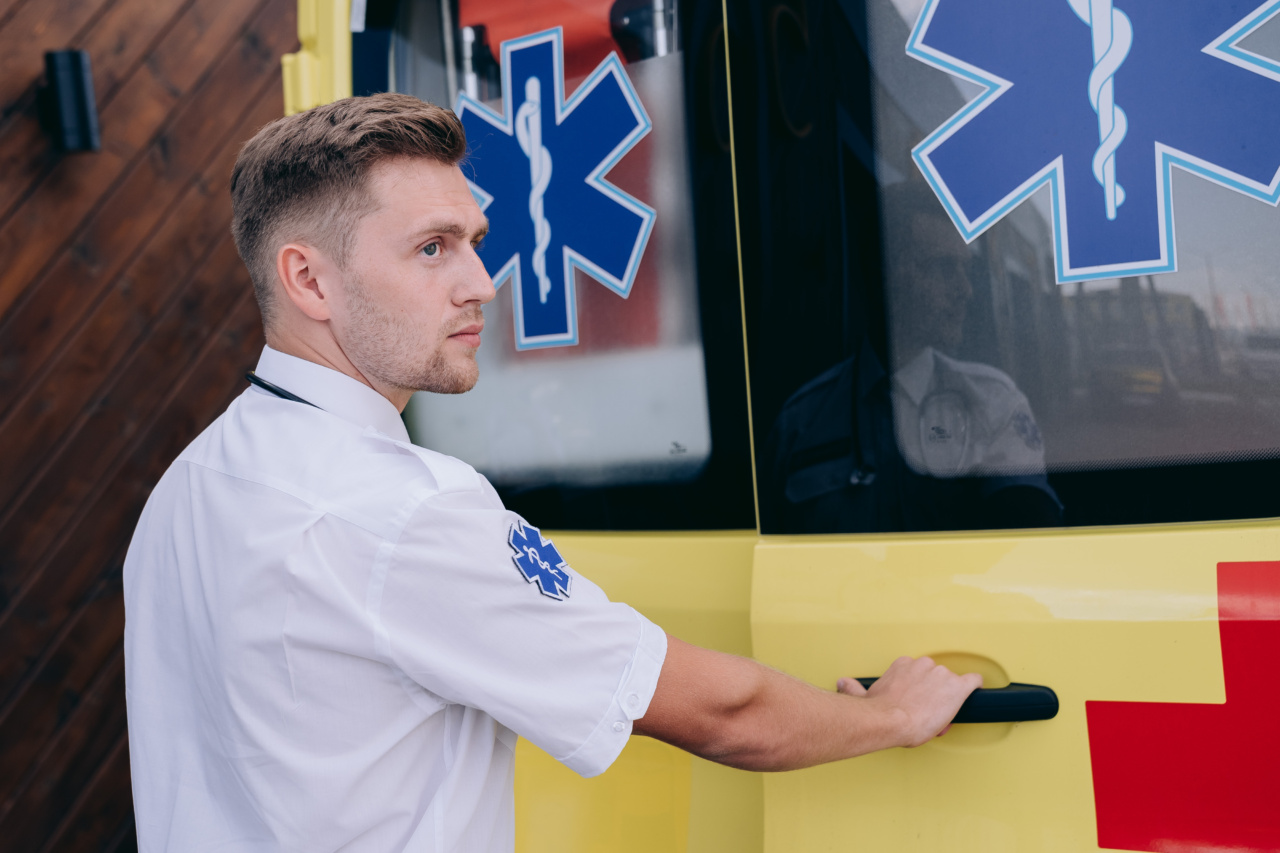Dangerous situations are inevitable, especially in the workplace, home, or any other environment. Sometimes, these situations may require immediate medical attention for the victim’s survival.
As a result, it is crucial to know how to handle dangerous situations that demand medical assistance. This article will outline different dangerous situations that might arise, various medical conditions that require immediate attention, and the necessary steps to take to ensure the victim’s optimal chance of survival.
Heart Attack
A heart attack is a severe medical condition that may require immediate medical attention. It occurs when an artery is blocked, limiting blood flow to the heart.
The symptoms of a heart attack may vary from person to person, but it mostly includes chest pain, arm pain, shortness of breath, nausea, dizziness, and lightheadedness. If you suspect that someone is having a heart attack, call for emergency medical assistance immediately.
Choking
Choking can be a significant emergency, especially if the victim cannot breathe. It occurs when an object obstructs the victim’s airway and can lead to death if not treated immediately. To handle choking, follow these steps:.
- Encourage the victim to cough if he or she can breathe
- If the coughing does not work, stand or sit behind the victim and provide back blows.
- If back blows do not work, give the victim abdominal thrusts until the object is dislodged.
- Call for emergency medical assistance if the object is not dislodged within a few minutes.
Seizures
Seizures are sudden and uncontrolled movements that result from abnormal electrical discharges in the brain. They can happen to anyone, and they require attention once they occur. Below are the steps to follow when someone experiences a seizure:.
- Move the victim to a safe place to avoid harm.
- Remove any dangerous objects from the area.
- Turn the victim’s head to the side to ensure the airway is open.
- Do not hold the victim down or put anything in their mouth.
- Call for emergency medical assistance immediately if the seizure lasts more than 5 minutes.
Allergic Reaction
Allergic reactions may range from mild to severe, and they can occur due to contact with substances such as bee stings, peanuts, or pet dander.
Severe allergic reactions can cause anaphylaxis, which is a life-threatening response that can cause the victim to stop breathing. If someone around you has a severe allergic reaction, do the following:.
- Call for emergency medical assistance immediately.
- If the victim has an EpiPen, use it immediately to stop further allergic reaction.
- Have the victim lie flat on their back and elevate their legs if possible.
- Remain with the victim until the emergency medical assistance arrives.
Broken Bones
Broken bones can be excruciating, especially when the fracture is severe. If someone around you has a broken bone, you must take the following steps:.
- Encourage the victim to stop any activity and stay still.
- Immobilize the broken part by using a splint if possible.
- Call for emergency medical assistance immediately.
- Provide pain-relieving medication to the victim while waiting for emergency medical assistance.
Burns
Burns are painful and require medical attention, depending on their severity. If someone around you has a burn, do the following:.
- Remove any clothing from the burn area unless it adheres to the skin.
- Run cool water over the burn area to lower the skin temperature.
- Apply a sterile bandage or dressing to the burned area.
- Call for emergency medical assistance immediately if the burn is severe or if the victim experiences difficulty in breathing, or the burn occurred due to electricity or chemicals.
Stroke
A stroke is a severe medical emergency that happens when blood supply to the brain is interrupted.
The symptoms may include sudden confusion, difficulty speaking or understanding, numbness in the face, arm, or leg, headache, trouble walking or dizziness. If someone you know experiences a stroke, immediately call emergency medical assistance and follow the steps below:.
- Time the onset of the symptoms to inform the medical team.
- Encourage the victim to rest and not do any activity.
- Monitor the victim’s breathing, pulse, and blood pressure.
Eye Injury
An eye injury can happen due to several reasons, such as a direct blow to the eye, chemicals in the eye, and foreign objects in the eye. If someone you know has an eye injury, do the following:.
- Flush the eyes with clean water for 15 to 20 minutes to remove the foreign object.
- Cover the injured eye with a sterile covering, and seek medical assistance immediately.
Wound
A wound can be minor or severe, but it requires attention to prevent infections. If someone you know has a wound, do the following:.
- Clean the wound with clean water and soap, and cover it with a sterile dressing.
- Apply pressure to stop any bleeding.
- Call for emergency medical assistance immediately if the bleeding does not stop or the wound requires stitches.
Conclusion
Handling emergencies that require medical attention requires quick thinking and action. The above tips are just guidelines to help you handle various dangerous situations, but they are not conclusive.
Always remember to call emergency medical assistance when you witness such situations to ensure the victim’s optimal chance of survival.


























